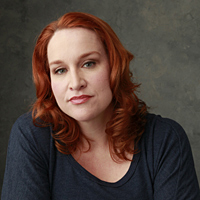
Stephanie Francis Ward
The profession has evolved since we named our first Legal Rebels in 2009—and there are now positions at law firms and elsewhere that didn’t exist when we first started this project.
We asked well-known legal advisers, consultants, firm leaders and innovators to give examples of some of these new jobs and also tell us what jobs they see coming for legal services in the next five years. What follows is both a closer look at the present and a vision of the future described in the work that will be done to create it.
Legal risk manager. Provides advice to help clients avoid legal problems rather than just representing them when they run into trouble.
—Richard Susskind, academic and futurist, author of Tomorrow’s Lawyers
Legal knowledge engineer. Uses knowledge management tools and legal expertise to create things like decision trees applicable to a legal issue. The work focuses on finding ways to solve types of problems instead of solving individual problems as they come.
—Richard Susskind
Expert trusted adviser. The strategist and go-to person when you need a certain expertise.
—Richard Susskind
Contract or litigation analyst. Captures legal know-how in large collections of legal information, using analytical tools to aggregate and synthesize the key elements.
—Kingsley Martin, president and CEO of KMStandards
Privacy professional. Specializes in compliance work for the privacy arena. Increasing regulation regarding privacy has created a demand for compliance work. The jobs are usually on the defense side, but sometimes with plaintiffs and the government as well.
—Eric Goldman, professor at Santa Clara University School of Law and director of the High Tech Law Institute
Alternative litigation funder. Finds third-party funding for a wide range of cases, including ones that involve small businesses.
—Michele DeStefano, University of Miami School of Law professor, founder and co-creator of LawWithoutWalls
Regulatory compliance lawyer. A lower-paying job at law firms and businesses where specialization in processes is important.
—David Van Zandt, president of the New School, former dean of Northwestern University School of Law
Professionalism or client relations coordinator. Oversees retainers, fee structures and service to ensure clients are treated fairly. Also makes sure aging lawyers are handled appropriately when necessary, and ensures that younger lawyers are adequately hired and trained.
—Ronald C. Minkoff, partner at Frankfurt Kurnit Klein & Selz, head of the professional responsibility group
Pricing specialist. advises firm management on pricing policies, and negotiates fee arrangements and discounting.
—Peter Zeughauser, chairman of the Zeughauser Group
Partner engagement manager. Ensures matters are managed to a result that meets or exceeds client expectations for a fee the client sees as high-value.
—Peter Zeughauser
Lawyer coach. Coaches pro se litigants on how to represent themselves.
—Richard Granat, founder and CEO of the Granat Group
Online mediator. Handles online disputes between parties, as well as disputes that take place offline when the parties choose to resolve them via the Internet.
—Richard Granat
Consumer Financial Protection Bureau compliance officer. The CFPB did not exist five years ago.
—Robert G. Markoff, partner at Markoff Law
Internal investigations lawyer. Former prosecutors (usually) who handle internal investigations for clients.
—Will Meyerhofer, JD LCSW, The People’s Therapist
Client teams specialist. Responsible for planning, execution and day-to-day management of a project or portions of a project for multiple clients. Meets the established scope, estimated costs and timelines.
—Joel Henning, legal consultant and writer, Joel Henning & Associates
As the needs, requirements, methods, strategies—and the nature—of the legal profession continue to change, new duties will arise and new positions will be created to handle them. Here are some legal services job titles our experts think you’ll be seeing between now and 2018.
Economista. Already in Latin America, it is a lawyer whose job it is to make sure a company complies with applicable health and safety regulations so employers can avoid financial penalties.
—Jay Foonberg, lawyer and author, How to Start & Build a Law Practice
Indigent defense. Handles tickets and the like in underserved rural areas and overstressed urban jurisdictions, as well as in municipal courts. Increasingly, cities with significant financial problems are beefing up ticketing systems to generate more revenue.
—Heidi Boghosian, executive director, National Lawyers Guild
Integration coach. Addresses issues that come up with integrating lateral hires. An American Lawyer Media survey from this year found that 96 percent of managing partners expected their firms to grow through lateral hiring, but only 28 percent reported that their lateral hiring has been a “highly effective” strategy.
—Karen Kaplowitz, lawyer and president of New Ellis Group
Wellness expert. Works in-house or for law firms.
—Janice Brown, partner at Brown Law Group
Protocol expert. Advises on working in different cultures as the profession becomes more global.
—Janice Brown
Law school special placement person. Helps law students find jobs in the new career cluster. Job responsibilities include identifying new, emerging careers in the profession and building courseware to train students for the positions.
—Richard Granat
Stephanie Francis Ward is an ABA Journal legal affairs writer.